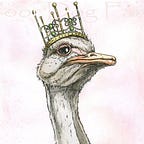Defining internet celebrity: Now vs. Then
What is celebrity? How do we define fame in today’s age and how has the notion changed and evolved in the past decades?
Looking back 20 years ago, we can observe that people who were famous possessed different characteristics than the ones that are well-known today. Fame was obtained by someone through their talents, their success in their field of work, or due to the fact that they were a public figure in an important office, such as presidents, prime ministers, and other political figures.
Now fame has become more accessible to the public through the rise of social media platforms. It was argued that modern celebrities possess no real talent and are mainly famous for their ability to be liked by the general public and to appear “relatable” to them.
Turner (2013) argued that modern celebrities may claim no special achievements other than the attraction of public attention. A highly relevant example to support this point could be seen when looking at the participants from shows such as “Love Island”, “Too Hot to Handle” and “Big Brother” that gained instant fame and had no actual talent or achievement other than participating to these reality-TV shows.
So, what is celebrity?
Commentary in popular media publications by columnists and intellectuals tends to define modern celebrity as a symptom of a concerning cultural shift from the enduring, the written, and the rational to the momentary, the visual, and the sensational (Turner, 2013). Consumers of celebrity and those who invest in it describe it as a “natural” quality that only some extraordinary individuals possess, which is easily recognizable by talent scouts, producers, and people who work in the industry. Even though people from the industry define it as a quality that someone has, scholars have deemed fame to be a product of several cultural and economic processes. These refer to the commodification of the individual celebrity through promotion, advertising, and publicity (Turner, 2013).
Although the cultural and economic processes mentioned above still apply in several domains, the evolution of social media has enabled internet celebrities to promote and create an image for themselves without the assistance of other agencies. In most cases, internet celebrities, also known as “Influencers” have developed a following (a fan base) on one platform which helped them to expand across all social media platforms. By managing their own accounts, they are in full control of the persona they present online and of the content they are posting on their platforms, which allows them to give off the impression of authenticity, which enables them to grow their following even more.
To sum up, there are clear differences between the people that were considered celebrities in the past and the ones that are deemed famous now. There was a greater emphasis put on culture and promoting talent and achievement in a certain field in the past than it is now. Given the evolution of social media, fame has become more accessible to the general public and people have been taking advantage of that in order to get in the public eye.
References:
Cashmore, E. (2007). Celebrity culture. The Blackwell Encyclopedia of Sociology.
Turner, G. (2013). Understanding celebrity. Sage.
Images and gifs retrieved from google image: https://www.google.com/imghp?hl=en
